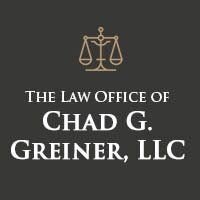Best Landlord & Tenant Lawyers in Georgia
Share your needs with us, get contacted by law firms.
Free. Takes 2 min.
Free Guide to Hiring a Real Estate Lawyer
Or refine your search by selecting a city:
List of the best lawyers in Georgia, United States
United States Landlord & Tenant Legal Questions answered by Lawyers
Browse our 2 legal questions about Landlord & Tenant in United States and read the lawyer answers, or ask your own questions for free.
- What is owner of condo units obligation as far as damage to the condo below their unit.
- The unit above my condo is managed by a Property Management company, and it was rented. During the time it was rented, there were water leaks that damaged my ceilings, and the Management Company. refuses to fix the ceiling so that it matches the rest of the ceiling. Even though... Read more →
-
Lawyer answer by Horus Legal Sulotion
Thank you for sharing the details of your situation. Based on the circumstances you described, you may have grounds to escalate the matter legally. You can file a case to request the appointment of a government engineer from Dubai Municipality...
Read full answer - How to protect property from squatters law
- Deed in my mom's name. She died 18 years ago. Son is named as administrator but not as owner. We live in USA so let Non relative live there for 45-50 year but had no formal contract. Let him live there free as long as he paid utilities and taxes.... Read more →
-
Lawyer answer by M BILAL ADVOCATES, CORPORATE & TAX CONSULTANTS
After completing probate to establish yourself as the legal heir, you can transfer the property title to your name and then grant them permission to reside there through a formal agreement. It is worthy to note that you can do...
Read full answer
About Landlord & Tenant Law in Georgia, United States
Landlord and tenant law in Georgia outlines the rights and responsibilities of both property owners and renters involved in residential and commercial leasing agreements. Governed mainly by the Official Code of Georgia Annotated (O.C.G.A.), these laws address issues such as security deposits, rent payment, repairs and maintenance, eviction procedures, and the proper handling of leases. The goal is to ensure fair and equitable treatment for both parties, providing tools to resolve disputes when they arise. Georgia’s legal framework tries to maintain a balance between protecting tenants from unfair practices and safeguarding landlords’ property interests.
Why You May Need a Lawyer
Many individuals seek legal help with landlord and tenant matters due to the complexity and potential high stakes of real estate disputes. Common situations where legal assistance may be necessary include:
- Reviewing, drafting, or negotiating lease agreements
- Handling eviction actions, whether for landlords or tenants
- Disputes over security deposit returns
- Alleged lease violations, such as non-payment of rent or property damage
- Harassment or illegal lockouts by landlords
- Claims of unsafe or uninhabitable living conditions
- Disagreements about repairs or maintenance responsibilities
- Problems arising from shared utilities or amenities
- Fair housing discrimination claims
Engaging a skilled attorney can help protect your legal interests, avoid costly mistakes, and navigate the court system if litigation becomes necessary.
Local Laws Overview
Georgia’s landlord and tenant laws are primarily governed by state statutes, but some cities or counties may have added rules or ordinances. Here are several key aspects:
- Written and Oral Leases: Both are legally binding in Georgia, but written leases offer better clarity and protection.
- Security Deposits: Landlords cannot require unreasonable security deposits and must return the deposit within one month after lease termination, minus deductions for damages or unpaid rent. There are specific requirements for handling and returning security deposits.
- Rent Payment: There are no statewide rent control laws. Late fees must be reasonable and detailed in the lease.
- Repairs and Maintenance: Landlords are obligated to keep the property in safe and habitable condition. Tenants must notify landlords of needed repairs.
- Eviction Procedures: Landlords must provide proper notice (usually a demand for possession before filing an eviction) and cannot evict without a court order.
- Entry by Landlord: Georgia law does not specify required notice before a landlord enters, but reasonable notice is customary except in emergencies.
- Discrimination: Landlords must comply with federal fair housing laws prohibiting discrimination based on race, color, religion, sex, national origin, disability, or familial status.
- Retaliatory Actions: Landlords may not retaliate against tenants for complaining about unsafe conditions or exercising legal rights.
Frequently Asked Questions
What is the minimum notice a landlord must give before terminating a lease?
For a month-to-month tenancy, either party can terminate the lease with 30 days’ written notice. Fixed-term leases typically last for the length stated and do not require notice unless otherwise specified in the agreement.
Can my landlord enter my rental property without my permission?
Georgia law does not require landlords to give notice before entering, but it is good practice to give reasonable notice except in the case of emergencies.
How long does a landlord have to return my security deposit?
Landlords must return the security deposit within one month after the lease ends, deducting only for unpaid rent or damages beyond normal wear and tear.
What reasons can a landlord evict a tenant in Georgia?
Common reasons include non-payment of rent, lease violations, property damage, or holding over after lease expiration. Illegal reasons, such as retaliation or discrimination, are prohibited.
How can a tenant withhold rent if repairs are not made?
Georgia law does not specifically allow tenants to withhold rent. Instead, tenants may make repairs and sue for reimbursement, or possibly terminate the lease if conditions are severe enough.
Are there limits on late fees for rent in Georgia?
No state law limits late fees, but they must be reasonable and outlined in the lease agreement.
What can I do if my landlord refuses to make necessary repairs?
Tenants should notify the landlord in writing, keep records, and may file a claim in court if the landlord fails to maintain safe living conditions.
Can a landlord increase rent during the lease term?
Rent cannot be increased during a fixed-term lease unless the lease agreement allows it. For month-to-month leases, landlords must give at least 30 days’ written notice before increasing the rent.
What are my rights to privacy as a tenant?
Although there is no specific statute, tenants generally have the right to quiet enjoyment of their premises. Reasonable notice for entry is expected except in emergencies.
What should I do if I receive an eviction notice?
Read the notice carefully and seek legal advice immediately. Do not ignore court filings - missing a court date can result in eviction by default.
Additional Resources
If you need further information or assistance on landlord and tenant matters in Georgia, the following resources may be helpful:
- Georgia Department of Community Affairs - Housing Division
- Georgia Legal Services Program
- State Bar of Georgia - Consumer Assistance Program
- Atlanta Volunteer Lawyers Foundation
- U.S. Department of Housing and Urban Development (HUD) - Georgia Office
- Local court’s landlord and tenant division (county magistrate courts typically handle evictions)
- Tenant advocacy organizations and local housing authorities
Next Steps
If you believe you need legal assistance with a landlord or tenant issue in Georgia:
- Gather all relevant documents, such as your lease, rent payment records, correspondence, and photographs of any property damages or conditions.
- Contact a knowledgeable attorney who specializes in landlord and tenant law for a consultation. Many agencies and lawyer referral services provide low-cost or free consultations.
- If your case involves eviction or urgent matters, act quickly to protect your rights. Missing deadlines or court dates can significantly impact your options.
- Consider mediation or alternative dispute resolution if appropriate - these options can sometimes provide faster and more amicable resolutions.
- Use the additional resources listed above to educate yourself about your rights and responsibilities before proceeding further.
Legal matters involving property and housing can affect your financial security, health, and stability. Seeking advice from qualified legal professionals ensures that you make informed decisions and protect your interests.
Lawzana helps you find the best lawyers and law firms in Georgia through a curated and pre-screened list of qualified legal professionals. Our platform offers rankings and detailed profiles of attorneys and law firms, allowing you to compare based on practice areas, including Landlord & Tenant, experience, and client feedback.
Each profile includes a description of the firm's areas of practice, client reviews, team members and partners, year of establishment, spoken languages, office locations, contact information, social media presence, and any published articles or resources. Most firms on our platform speak English and are experienced in both local and international legal matters.
Get a quote from top-rated law firms in Georgia, United States — quickly, securely, and without unnecessary hassle.
Disclaimer:
The information provided on this page is for general informational purposes only and does not constitute legal advice. While we strive to ensure the accuracy and relevance of the content, legal information may change over time, and interpretations of the law can vary. You should always consult with a qualified legal professional for advice specific to your situation.
We disclaim all liability for actions taken or not taken based on the content of this page. If you believe any information is incorrect or outdated, please contact us, and we will review and update it where appropriate.
Browse landlord & tenant law firms by city in Georgia
Refine your search by selecting a city.










